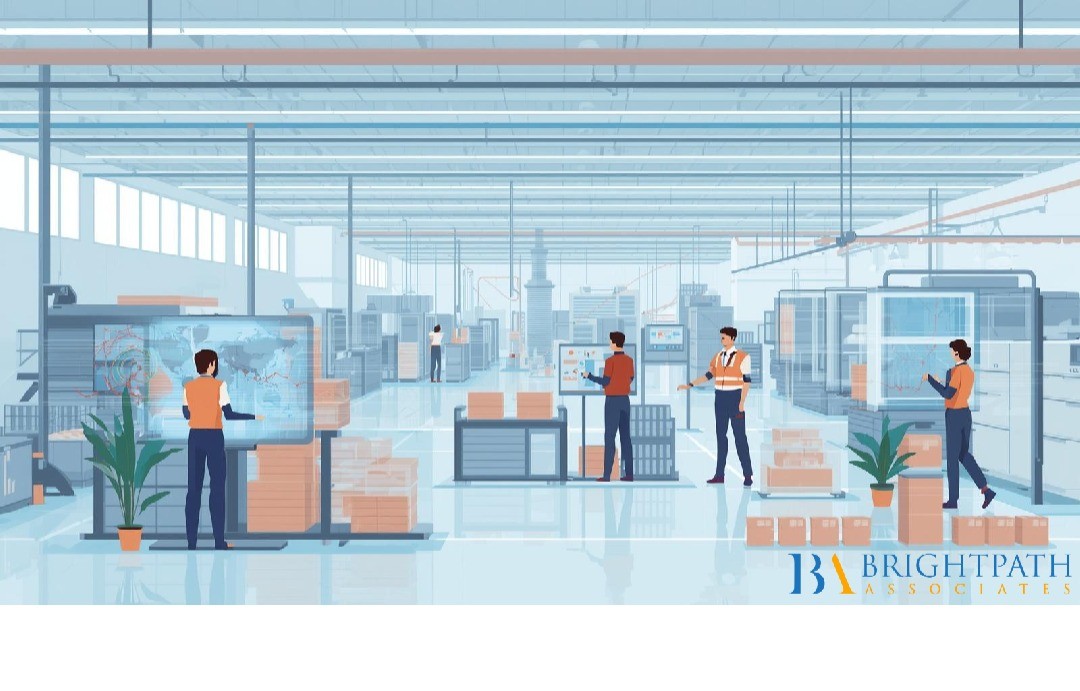Understanding the Current Challenges in Plastics Industry Supply Chains
The #PlasticsIndustry, pivotal in numerous sectors ranging from automotive to consumer goods, faces a myriad of unique supply chain challenges. Global disruptions such as the COVID-19 pandemic, which triggered widespread economic fallout, and ongoing geopolitical tensions have sharply highlighted the existing vulnerabilities within these supply chains. The repercussions have been felt in the form of raw material shortages, which pose significant threats to operational consistency and productivity. As the industry endeavors to navigate these multifaceted challenges, a detailed understanding of supply chain dynamics becomes crucial. This understanding is not merely an academic exercise but a fundamental necessity that informs decision-making at all levels. Conducting a thorough competitive analysis of the plastics industry allows companies to identify bottlenecks in their supply chains and optimize resources efficiently, ensuring that they can respond swiftly to changes in demand and supply.
Strategic Approaches to Enhancing Supply Chain Resilience
Diversification and Risk Management
The bedrock of a resilient supply chain is diversification. By actively spreading risk across multiple suppliers and geographic locations, plastics companies can substantially mitigate potential disruptions that may arise from localized events or economic shifts. This approach not only minimizes dependency on a single source but also enhances supply security. Adopting robust risk management practices is essential in maintaining agility and responsiveness in today’s fast-paced market environment. Comprehensive strategies such as developing contingency plans, conducting scenario planning, and engaging in regular risk assessments can effectively protect against unforeseen supply chain disruptions. By incorporating a detailed and comprehensive plastics industry risk management framework, businesses can better shield themselves against volatile market shifts and develop a deeper understanding of potential risks, allowing for more informed strategic planning.
Innovation in Plastics Manufacturing
Investing in advanced plastics manufacturing technology represents a crucial strategy for enhancing #SupplyChain resilience. Recent innovations—such as those found in automated production processes, robotics, and smart manufacturing—offer not only pathways to greater operational efficiency but also increased flexibility in responding to market demands. By leveraging cutting-edge technologies like the Internet of Things (IoT) and Artificial Intelligence (AI), plastics manufacturers can predict and respond to supply chain fluctuations in real-time, facilitating immediate adjustments that optimize the entire manufacturing process. In addition to operational improvements, this shift towards a technologically advanced infrastructure also positions companies favorably in the context of the future of plastics manufacturing, where sustainability and efficiency will be paramount. The integration of sustainable practices, such as recycling and the use of bio-based materials, can further enhance a company’s reputation and align business practices with consumer expectations, contributing to long-term resilience.
The Role of Strategic Partnerships and Global Leadership
Forming Strategic Partnerships
In today’s interconnected world, the establishment of strategic partnerships is invaluable. Collaborations with key stakeholders—including suppliers, logistics partners, research institutions, and even competitors—can significantly fortify supply chain networks. These partnerships not only ensure steady access to necessary raw materials and components but also stimulate innovation through the sharing of knowledge and resources. Establishing a plastics industry innovation ecosystem, where companies collaborate on research and development efforts, becomes vital for those firms aiming for global leadership within the plastics sector. This cooperative approach can lead to co-creating solutions that address common challenges and opens the door to new markets, technologies, and practices that may not have been achievable independently.
Emphasizing the Importance of Executive Search Recruitment
Addressing Leadership Gaps
The evolving landscape of the plastics industry has introduced a wave of new challenges in leadership. Rapid #TechnologicalAdvancements and changing market dynamics necessitate a reevaluation of leadership capabilities and structures. Emerging dynamics in executive hiring reveal a pressing need to address leadership talent shortages effectively. Industry leaders must adapt to shifting role expectations, which increasingly require a unique blend of technical expertise, strategic foresight, and soft skills such as adaptability and communication. The years from 2023 to 2025 have seen recruitment practices evolve dramatically, pushing companies to implement targeted strategies designed to attract and retain top-tier leadership talent. Failure to do so could result in a skills gap that hinders growth and innovation.
Executive Search as a Solution
#ExecutiveSearchRecruitment stands out as a strategic solution to the leadership challenges faced by many organizations in this sector. By offering tailored recruitment strategies, specialized executive search firms, such as BrightPath Associates, empower businesses to identify and recruit leaders who can drive transformative change, instilling a shared vision and cultivating a strong organizational culture. This approach ensures that the leadership aligns with a company’s strategic goals and values, cementing the foundation for future success and resilience. As the plastics industry continues to expand and evolve, leveraging executive search recruitment becomes indispensable for sustaining a competitive edge, especially in a landscape characterized by rapid change, uncertainty, and increasing competition.
Conclusion: Future of Supply Chain Resilience in the Plastics Industry
In conclusion, fortifying supply chains in the plastics industry requires a multifaceted and organized approach. From the establishment of strategic partnerships to embracing the latest technological innovations, companies must adopt a comprehensive strategy designed not only for immediate resilience but also for sustainable growth in the long term. Furthermore, executive search recruitment plays a pivotal support role in bridging leadership gaps, enabling companies to navigate the complexities of modern supply chain management effectively. By maintaining a keen focus on plastics manufacturing growth strategies, conducting regular competitive analysis, and fostering an innovative mindset, plastics companies can position themselves at the forefront of industry advancements. In turn, this will ensure robust supply chains that are well-equipped to withstand future challenges and adapt to the ever-changing landscape of #GlobalCommerce.
Find your next leadership role in Plastics Industry today!
Stay informed with the latest insights on Plastics Industry!

